Modeling the Values of Responsible Travel: A Conversation With Education Abroad Professionals
Posted on
04/17/19
Author
Dragons HQ
Modeling the Values of Responsible Travel
A Conversation With Education Abroad Professionals
Responsible travel is a concept that we talk about frequently at Dragons. On programs, we employ a variety of approaches to help students understand and then engage in activities that are responsible in nature. We might do that by asking students to dress in culturally appropriate ways, encouraging students to use the target language with host family members, teaching students how to use local transportation, etc. (see our position paper for more examples of how we strive to travel responsibly). Many of these approaches are, in essence, an effort to ask our students to adapt to the place rather than demanding that the place adapt to our own needs, desires, and expectations.
Many of these approaches are, in essence, an effort to ask our students to adapt to the place rather than demanding that the place adapt to our own needs, desires, and expectations.
Defining Responsible Travel
When talking about responsible travel, the basic question is “what distinguishes travel from being responsible or not”? In the most simple terms, it is whether or not the travel is in alignment with a specific set of values we hold to be true. Broadly, we think that responsible travel aims to minimize the negative impacts that international visitors, like our study abroad students, might have on a local economy, environment, or culture. Moreover, our sense is that responsible travel is not only about minimizing harm, but also about attempting to have a positive impact on host communities.
Broadly, we think that responsible travel aims to minimize the negative impacts that international visitors, like our study abroad students, might have on a local economy, environment, or culture.
And what ARE the values that underpin responsible travel? We recognize that there isn’t a right answer to this question, but at Dragons, we have attempted to come up with a definition to help drive our work. We define this concept as travel that aligns with the values of being culturally conscious, environmentally responsible, and focused on developing meaningful connections and mutual respect in communities.
Why Modeling Matters
As part of her Master’s thesis, our colleague Shino Marta Yoshen recently conducted a series of interviews with Dragons US-based, field staff and alumni.

Shino’s research revealed how important and meaningful it was to staff that Dragons, as a whole, demonstrated a willingness to incorporate the values of responsible travel into the organizational functioning. The interviews seemed to indicate that people are inspired and work more passionately when they feel their work is actively aligned with their values. Those Shino interviewed seemed to be engaging in the field of intercultural education primarily because they believe in the importance of such work. We think this is a core reason for most of us to work in this field, and therefore being mindful of how we can embody our values ourselves keeps us connected to why we choose this work. And it reminds us of the importance of these values and of passing them on to students.
Modeling the values of responsible travel is also important because students can tell when we walk the walk…
Modeling the values of responsible travel is also important because students can tell when we walk the walk, and are more likely to embody these values when they see it modeled, or can tell it is modeled. Alumni being interviewed described instances when they saw responsible travel modeled as significant moments of learning. Modeling these values before students depart for their host communities is helpful in preparing students to actually embody them when on program. Modeling values both during and after the program is also helpful because it shows students that these values can influence the way they engage/live even when they are back home, beyond just their abroad experience.
Beyond the Boundaries of a Program
While the work of striving to travel responsibly on education abroad programs is crucial, we believe it is not enough. Recently, several members of the Dragons team attended The Forum on Education Abroad conference which focuses on the best practices in the field of education abroad. As part of that conference, we invited a long-time collaborator, Darren Grosch, from Mt. San Antonio College to help us facilitate a session in which we asked our colleagues from universities and colleges, study abroad program providers, government agencies, etc. to broaden our thinking about responsible travel. In short, we considered the following question which has become increasingly central for us at Dragons: “How do we model the values of responsible travel beyond the boundaries of a program?”
In other words, are there ways our work can model values such as being environmentally responsible or developing mutual respect in communities for our students before or after they go, in the ways our offices approach particular things, or in the ways we develop other programming which is not abroad?
How do we model the values of responsible travel beyond the boundaries of a program?
At Dragons we have tried to do this through ensuring program budget funds go back into local communities, having staff policies which provide paid leave for volunteering in home communities, or by creating incentives to bike to work; to give a few examples.
As part of our session, we asked our colleagues from across the U.S. and the world to consider how they are or could be modeling the values of responsible travel in their offices or on their home campuses. We asked them to think broadly – things they are doing (or want to be doing) with students before or after programs, actions that model values in the way their office operates or the standards leadership sets, or how they could collaborate with other departments / organizations / or communities.
we asked our colleagues from across the U.S. and the world to consider how they are or could be modeling the values of responsible travel in their offices or on their home campuses…
A Call To Action
As a culmination of this conversation, we encouraged our colleagues to commit to one action they felt they might be able to realistically accomplish in the coming year which would help their specific work environment better model the values of responsible travel. And commit they did! Included below are a number of the inspiring responses to this call to action.
Make Your Values Known
- “Model responsible travel through inserting values into general study abroad recruitment tools, presentations, and initiatives.”
- “Train peer ambassadors on the values of the larger office.”
- “Use responsible travel values as a guide for marketing and promotion. Do the messages we put out contradict these values?”
- “Create a handout for faculty who lead programs regarding what responsible travel means and how to model it.”
- “Have the institution integrate responsible travel values in the larger mission statement and strategic vision.”
- “Incorporate responsible travel questions and assessment process in the faculty-led program proposal process.”
Train Students Before they Go Abroad
- “Adding responsible travel as a topic during pre-departure programming.”
- “Facilitate conversations with students pre-departure on resource awareness and ethical travel habits.”
- “Implement a responsible traveler workshop for faculty and students to compliment regular pre-departure training.”
- “Create a credit-bearing course during pre-departure and returnee process to make students more accountable for their actions while abroad.”
Be a Student Yourself
- “Provide staff with resources to learn the language and history of host countries where we oversee programs.”
- “Provide on-campus language workshops: conversational skills taught by native speakers.”
- “Train staff members to the tools and importance of preparation and reflection.”
- “Offer opportunities for staff to learn indigenous culture, etiquette, and key phrases.”
- “Provide language training to all staff.”
Create Spaces to Share Values Learned Abroad
- “Create a re-entry session about modeling values learned during study abroad now that students are back on campus.”
- “Have a workshop with students who have previously gone abroad to share lessons learned about responsible travel and cultural engagement.”
- “Start an alumni panel as the peer models for responsible travel.”
Connect with the Local Community
- “Invite and encourage return study abroad students to attend international student events and support their fellow students both at the home campus and abroad.”
- “Develop programs that encourage students who have returned from study abroad to engage with the local community.”
- “Train international students on the home campus to help lead pre-departure preparation for study abroad students going to those students’ home countries.”
Value the Contributions of Host Communities
- “Hire local scholars in order to model the value of local expertise and counteract ‘savior’ narratives.”
- “Create a formal feedback process for community partners – their opinion matters just as much as the students’.”
- “Organize speakers from the Global South to be brought to the home institution for shared learning and exchange.”
- “Incorporate host community feedback and perspectives via the assessment process.”
Focus on Sustainability Efforts
- “Create a PDF for travelers on how specific actions can offset the carbon footprint per mile traveled.”
- “Call together a sustainability working group for colleagues at the university.”
- “Encourage students to have conversations about consumption.”
- “Composting and more responsible recycling at headquarters office.”
- “Collaborate with the on-campus programs and student organizations focused on sustainability to improve practices while abroad.”
In reading through these commitments to actions, it is clear that Dragons is not alone in believing that there are, indeed, numerous ways that we can model the values of responsible travel outside of direct programming. This discussion is an evolving one and one that we feel is essential to keep at the forefront of our mind. We are committed to continuing this exploration amongst our own team and within the field of education abroad. We hope you’ll join us in that conversation.



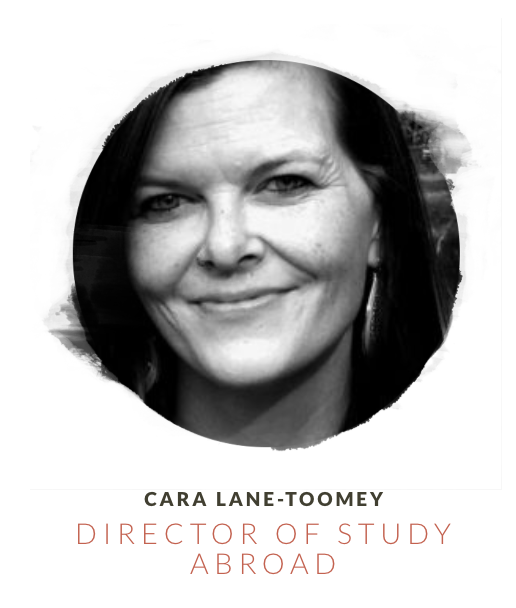
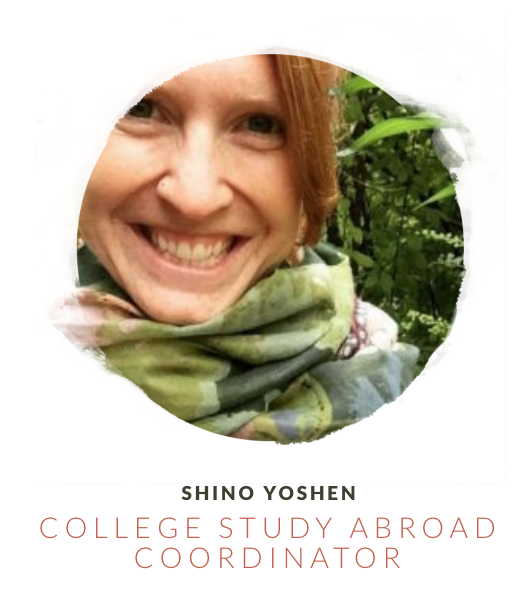
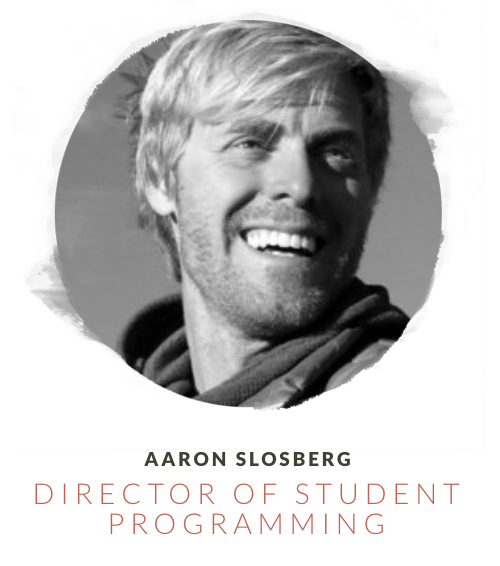
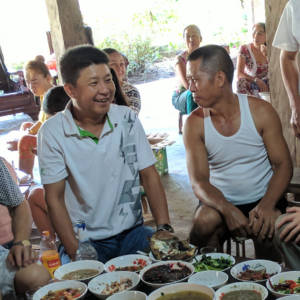
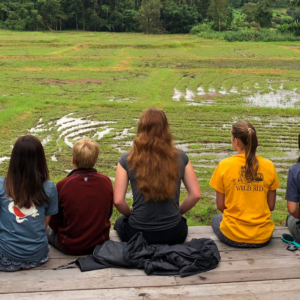
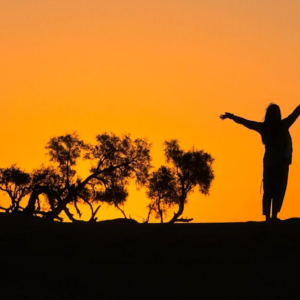
Leave a Comment